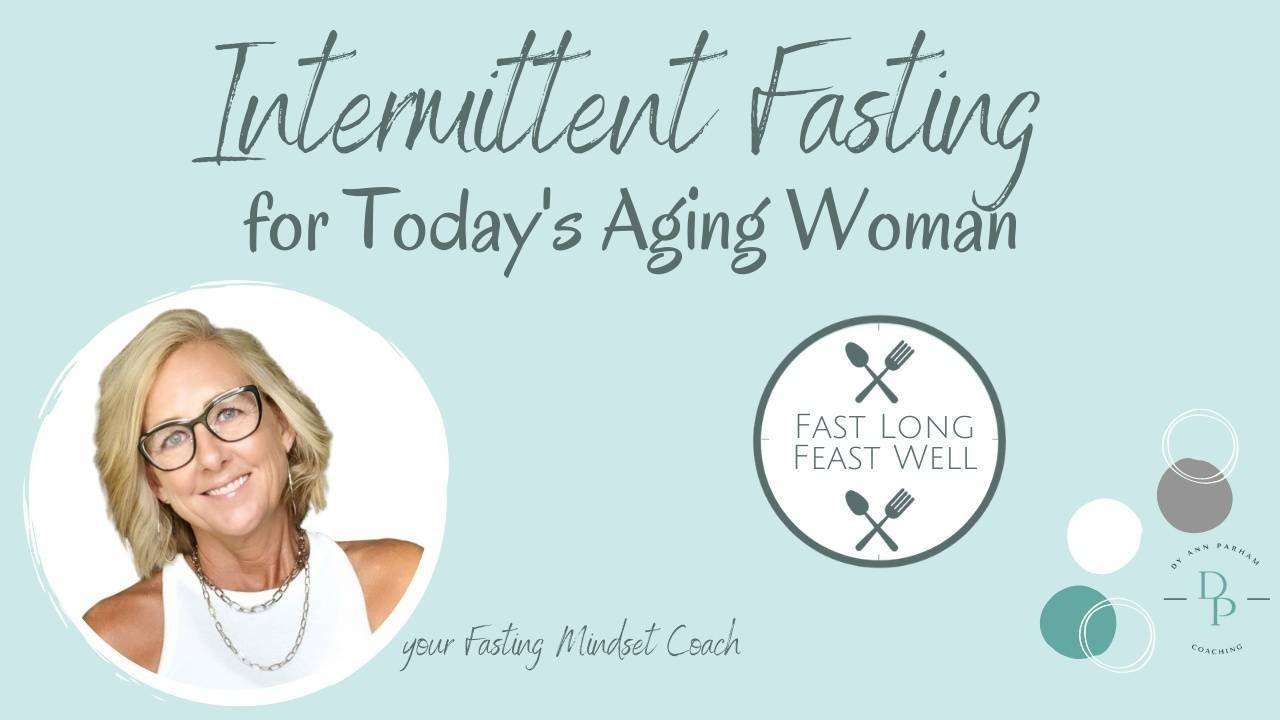
Introduction:
As we navigate the journey of life, the concept of aging becomes a central focus. How can we gracefully embrace the passing of time while maintaining our vitality and well-being? In this exploration, we delve into the fascinating connection between intermittent fasting and aging, uncovering the potential benefits that time-restricted eating may offer for a longer and healthier life.
Intermittent fasting and aging

Aging is a natural and inevitable process that involves a complex interplay of genetic, environmental, and lifestyle factors. Over the years, researchers have sought ways to not just extend our lifespan but also to enhance the quality of our later years. Enter intermittent fasting, a dietary strategy that has gained attention for its potential impact on the aging process.
The Science Behind Intermittent Fasting:
Intermittent fasting involves cycling between periods of eating and fasting. This simple yet profound approach triggers a cascade of biological responses within the body. During the fasting period, cellular repair processes are activated, and autophagy—the body’s way of cleaning out damaged cells—is stimulated. These mechanisms are believed to contribute to the anti-aging effects associated with intermittent fasting.
Calorie restriction and intermittent fasting provide anti-aging benefits

Cellular Repair and Autophagy:
Calorie Restriction (CR): Consuming fewer calories than the usual intake can trigger a cellular repair process known as autophagy. This is a mechanism where cells remove and recycle damaged components, contributing to overall cellular health.
Intermittent Fasting (IF): Similarly, intermittent fasting induces autophagy during periods of fasting. The body becomes more efficient at clearing out old and damaged cells, promoting the regeneration of new and healthy cells.
Reduction in Oxidative Stress:
CR: By consuming fewer calories, the body produces fewer reactive oxygen species (ROS) that contribute to oxidative stress. This reduction in oxidative stress is linked to a lower risk of age-related diseases.
IF: Intermittent fasting has been shown to decrease oxidative stress by improving the body’s ability to manage and neutralize free radicals, providing a protective effect against cellular damage.
Insulin Sensitivity and Blood Sugar Regulation:
CR: Lowering calorie intake often improves insulin sensitivity, reducing the risk of type 2 diabetes and related complications.
IF: Intermittent fasting can also enhance insulin sensitivity, helping to regulate blood sugar levels more effectively, which is crucial for overall metabolic health.
Inflammation Reduction:
CR: Calorie restriction has been linked to a decrease in inflammation markers in the body. Chronic inflammation is a significant contributor to various age-related diseases.
IF: Intermittent fasting has demonstrated anti-inflammatory effects, which may contribute to a lower risk of developing chronic inflammatory conditions associated with aging.
Hormonal Regulation:
CR: Calorie restriction influences various hormones related to metabolism and aging, including insulin and growth hormones. These hormonal changes play a role in the anti-aging effects of CR.
IF: Intermittent fasting also impacts hormone levels, promoting the release of growth hormone during fasting periods. This hormone is involved in cell repair and regeneration.
Brain Health:
CR: Calorie restriction has been associated with improved cognitive function and a reduced risk of neurodegenerative diseases.
IF: Intermittent fasting shows promise in supporting brain health, with studies suggesting benefits such as increased production of brain-derived neurotrophic factor (BDNF), a protein associated with cognitive function.
Hormonal Harmony: The Role of Intermittent Fasting in Balancing Aging Hormones
Delve into how intermittent fasting and aging influence hormones like insulin, growth hormone, and cortisol, and understand their impact on the aging process.
Cellular Rejuvenation: Exploring Autophagy and Its Anti-Aging Effects
Uncover the science behind autophagy, the cellular cleanup process activated during fasting, and its potential role in promoting cellular rejuvenation and longevity.
Heart Health and Longevity: Examining the Cardiovascular Benefits of Intermittent Fasting
Explore research on how intermittent fasting may positively impact cardiovascular health, reducing the risk of age-related heart conditions and promoting a longer, healthier life.
A Fountain of Youth for the Brain: Cognitive Benefits of Intermittent Fasting
Investigate the relationship between intermittent fasting and cognitive function, exploring how this dietary strategy may support brain health and delay age-related cognitive decline.
Beyond Weight Loss: Intermittent Fasting’s Comprehensive Approach to Healthy Aging
Discuss the broader impact of intermittent fasting on various aspects of health, from weight management to inflammation reduction, highlighting its potential for comprehensive healthy aging.
Navigating Challenges: Intermittent Fasting for Older Adults with Specific Health Concerns
Address considerations and potential challenges associated with implementing intermittent fasting in older individuals, emphasizing the importance of personalized approaches and medical guidance.
The Social Side of Aging: How Intermittent Fasting Fits Into Social Lifestyles
Explore practical tips and strategies for incorporating intermittent fasting into social situations, making it a sustainable and enjoyable lifestyle choice for individuals of all ages.
Personal Stories: Real-Life Experiences of Aging Well with Intermittent Fasting
Share personal narratives and success stories of individuals who have embraced intermittent fasting as part of their aging journey, providing inspiration and relatable experiences.
Different ways to follow an intermittent fast

Introduction:
Example: “Embarking on an intermittent fasting journey can be a powerful strategy not just for weight management but also for promoting healthy aging. Let’s explore how intermittent fasting and aging intersect, uncovering the potential benefits of this dietary approach on longevity.”
Benefits for Cellular Health:
Example: “One of the fascinating connections between intermittent fasting and aging lies in the realm of cellular health. By engaging in regular fasting periods, individuals may stimulate autophagy, a cellular repair process that plays a key role in slowing down the aging process.”
Impact on Oxidative Stress:
Example: “As we age, oxidative stress takes a toll on our cells. Discover how intermittent fasting could be a natural ally in the fight against oxidative stress, offering a protective shield for our cells and potentially contributing to a more resilient aging process.”
Hormonal Balance and Longevity:
Example: “The intertwining of hormones and aging is a complex dance, and intermittent fasting emerges as a partner in maintaining hormonal balance. Explore how intermittent fasting may influence growth hormone release, contributing to a holistic approach to longevity.”
Mitigating Inflammation Through Fasting:
Example: “Inflammation is a silent contributor to many age-related diseases. Delve into the anti-inflammatory potential of intermittent fasting, and how it may act as a powerful tool in mitigating chronic inflammation, thus supporting overall health as we age.”
Cognitive Benefits and Brain Health:
Example: “Aging gracefully also involves preserving cognitive function. Uncover the intriguing connection between intermittent fasting and brain health, exploring how this dietary strategy might offer protection against age-related cognitive decline.”
Personalized Approaches for Aging Well:
Example: “No two individuals age the same way, and the same holds true for intermittent fasting. Learn how personalized approaches to intermittent fasting can cater to individual needs, providing a roadmap for aging well with the support of this dietary practice.”
Real-World Success Stories:
Example: “Witness the transformative impact of intermittent fasting on aging through real-world success stories. Discover how individuals have embraced this lifestyle change, experiencing not just physical improvements but also witnessing positive effects on the aging process.”
Practical Tips for Incorporating Intermittent Fasting:
Example: “Ready to explore intermittent fasting for its anti-aging benefits? Here, we provide practical tips on how to seamlessly integrate intermittent fasting into your lifestyle, making this approach an achievable and sustainable component of your overall health strategy.”
Closing Thoughts on Aging Gracefully with Intermittent Fasting:
- Example: “In the grand tapestry of aging, intermittent fasting weaves a story of resilience and potential longevity. As we conclude this exploration, reflect on how intermittent fasting could be a simple yet profound tool in your journey towards aging gracefully and healthfully.”
Benefits of the ProLon Fasting Mimicking Diet
The ProLon Fasting Mimicking Diet (FMD) has gained attention for its unique approach to fasting, providing a structured dietary plan that mimics the effects of a fast while still allowing for the consumption of specific foods. Here are some potential benefits associated with the ProLon Fasting Mimicking Diet:
Cellular Autophagy:
The ProLon FMD is designed to promote cellular autophagy, a process where cells remove damaged components and recycle them. This cellular “clean-up” is associated with various health benefits, including improved cellular function and longevity.
Metabolic Health:
Following the ProLon FMD may contribute to improvements in metabolic health. Studies suggest that periodic fasting can enhance insulin sensitivity, helping regulate blood sugar levels and potentially reducing the risk of type 2 diabetes.
Inflammation Reduction:
Chronic inflammation is a factor in many age-related diseases. The ProLon Fasting Mimicking Diet has been associated with a reduction in markers of inflammation, potentially offering anti-inflammatory benefits that support overall health.
Cardiometabolic Health:
Some research indicates that the ProLon FMD may have positive effects on cardiovascular health. This includes improvements in cholesterol levels, blood pressure, and other factors associated with heart health.
Weight Management:
The ProLon Fasting Mimicking Diet can be a tool for weight management. By providing a calorie-restricted yet nutrient-dense plan, it may support individuals in achieving and maintaining a healthy weight.
Enhanced Brain Health:
Fasting, including the approach taken by the ProLon FMD, has been linked to improvements in brain health. This includes increased production of brain-derived neurotrophic factor (BDNF), a protein associated with cognitive function and neuroprotection.
Promotion of Longevity:
Caloric restriction and intermittent fasting have been associated with increased lifespan in various studies. While more research is needed, the ProLon Fasting Mimicking Diet, by promoting cellular health and addressing metabolic factors, may contribute to longevity benefits.
Nutrient Repletion:
The ProLon FMD is carefully designed to provide essential nutrients while maintaining a calorie-restricted state. This ensures that the body receives necessary vitamins and minerals during the fasting period, supporting overall health and well-being.
Convenience and Compliance:
The ProLon FMD offers a convenient and structured approach to fasting, making it more accessible for individuals who may find traditional fasting challenging. The pre-packaged meals and snacks simplify the process and enhance compliance.
Educational Component:
The ProLon Fasting Mimicking Diet includes an educational component, providing information and guidance on the principles of fasting and its potential health benefits. This educational aspect empowers individuals to make informed choices about their dietary habits.
Conclusion:
In the dance of time and health, intermittent fasting and aging emerge as a compelling partner, offering a unique rhythm that resonates with the aspirations of those seeking to age gracefully and vibrantly. As we reflect on the intertwining threads of intermittent fasting and aging, several key insights come to light.
The scientific underpinnings of intermittent fasting reveal a story of cellular renewal and metabolic recalibration. Autophagy, the cellular housekeeping process activated during fasting, stands as a beacon of hope for those looking to rejuvenate their bodies at the microscopic level. By fostering a cleaner, more efficient cellular environment, intermittent fasting paves the way for healthier aging.
The orchestration of hormones, including insulin, growth hormone, and cortisol, further underscores the role of intermittent fasting in promoting hormonal harmony. As these regulatory forces find equilibrium, the body may experience a more resilient response to the aging process, offering a shield against age-related imbalances.
Cardiovascular health, often a focal point in discussions of aging, finds a companion in intermittent fasting. Research suggests that this dietary strategy may contribute to heart health, reducing the risk of age-associated cardiovascular conditions and promoting the longevity of this vital organ.
Yet, the symphony of aging extends beyond the physical realm, touching the very essence of our cognitive faculties. Intermittent fasting, it seems, may hold the key to preserving mental acuity and delaying the onset of age-related cognitive decline. As we seek the fountain of youth for the brain, the potential cognitive benefits of intermittent fasting add a compelling note to the melody of healthy aging.
Navigating the challenges and considerations associated with intermittent fasting in the later chapters of life becomes essential. For older adults, personalized approaches and guidance from healthcare professionals can illuminate a path that aligns with individual health needs and ensures a harmonious integration of intermittent fasting into their lifestyles.
In closing, intermittent fasting transcends the boundaries of a mere dietary strategy; it becomes a lifestyle choice that echoes with the rhythm of longevity. Beyond weight management and physical health, it offers a holistic approach to aging, addressing the multifaceted aspects of our well-being. Real-life stories of individuals embracing intermittent fasting as a companion in their aging journey further underscore its potential to transform lives.
As we embrace the connection between intermittent fasting and aging, we embark on a journey not just to extend the quantity of our years but to enhance the quality of our moments. With each passing day, intermittent fasting invites us to savor the gift of time, cultivating a legacy of health and vitality that transcends the limitations often associated with the passing years. In the grand tapestry of life, intermittent fasting emerges as a timeless thread, weaving together the elements of health, resilience, and the promise of a richer, more fulfilling aging experience.
People also ask
Mindful Fasting: The Impact of 5 intermittent fasting and mental health
Fueling Your Fasts: 20 Delicious Meal Ideas for Intermittent Fasting
Unlocking Wellness: A Practical Guide to Intermittent Fasting for Women
FAQS
1. Is Intermittent Fasting Safe for Older Adults?
Intermittent fasting can be safe for older adults, but it’s crucial to consider individual health conditions. Consult with a healthcare professional before starting any significant dietary changes.
2. Can Intermittent Fasting Help with Age-Related Weight Gain?
Yes, intermittent fasting may assist in managing age-related weight gain by promoting fat loss and preserving lean muscle mass. The specific benefits vary among individuals.
3. How Does Intermittent Fasting Impact Age-Related Inflammation?
Intermittent fasting has shown potential in reducing inflammation, a common factor in age-related conditions. The fasting periods may contribute to a lower inflammatory response.
4. Is It Normal to Feel Fatigued During Intermittent Fasting, Especially as I Age?
Some initial fatigue is common as the body adapts to intermittent fasting. Adequate hydration and nutrient-dense meals during eating windows can help manage fatigue.
5. Can Intermittent Fasting Improve Cognitive Function in Older Adults?
Emerging research suggests that intermittent fasting may have cognitive benefits, potentially delaying age-related cognitive decline. However, more studies are needed to fully understand the extent of these effects.
6. Should Older Adults Follow the Same Intermittent Fasting Methods as Younger Individuals?
The choice of intermittent fasting methods may vary based on individual preferences and health conditions. Older adults may benefit from consulting with a healthcare professional to tailor an approach that suits their needs.
7. How Can I Stay Hydrated During Intermittent Fasting, Especially Considering Aging and Hydration Challenges?
Staying hydrated is crucial. Drink water throughout the fasting period and consider hydrating foods. Older adults should be mindful of their hydration needs, consulting with a healthcare professional if necessary.
8. Will Intermittent Fasting Interfere with Medications Taken by Older Adults?
It’s essential to consult with a healthcare professional regarding medication and intermittent fasting. They can provide guidance on how to adapt fasting methods to align with medication schedules.
9. Can Intermittent Fasting Address Digestive Issues Common in Aging?
Some individuals report improved digestion with intermittent fasting, but individual responses vary. If digestive issues persist or worsen, it’s recommended to seek advice from a healthcare professional.
10. How Long Does It Take to See Results from Intermittent Fasting in Aging Individuals?
The timeline for seeing results with intermittent fasting varies. Some individuals may notice changes in a few weeks, while others may take longer. Consistency and patience are key for long-term benefits.









